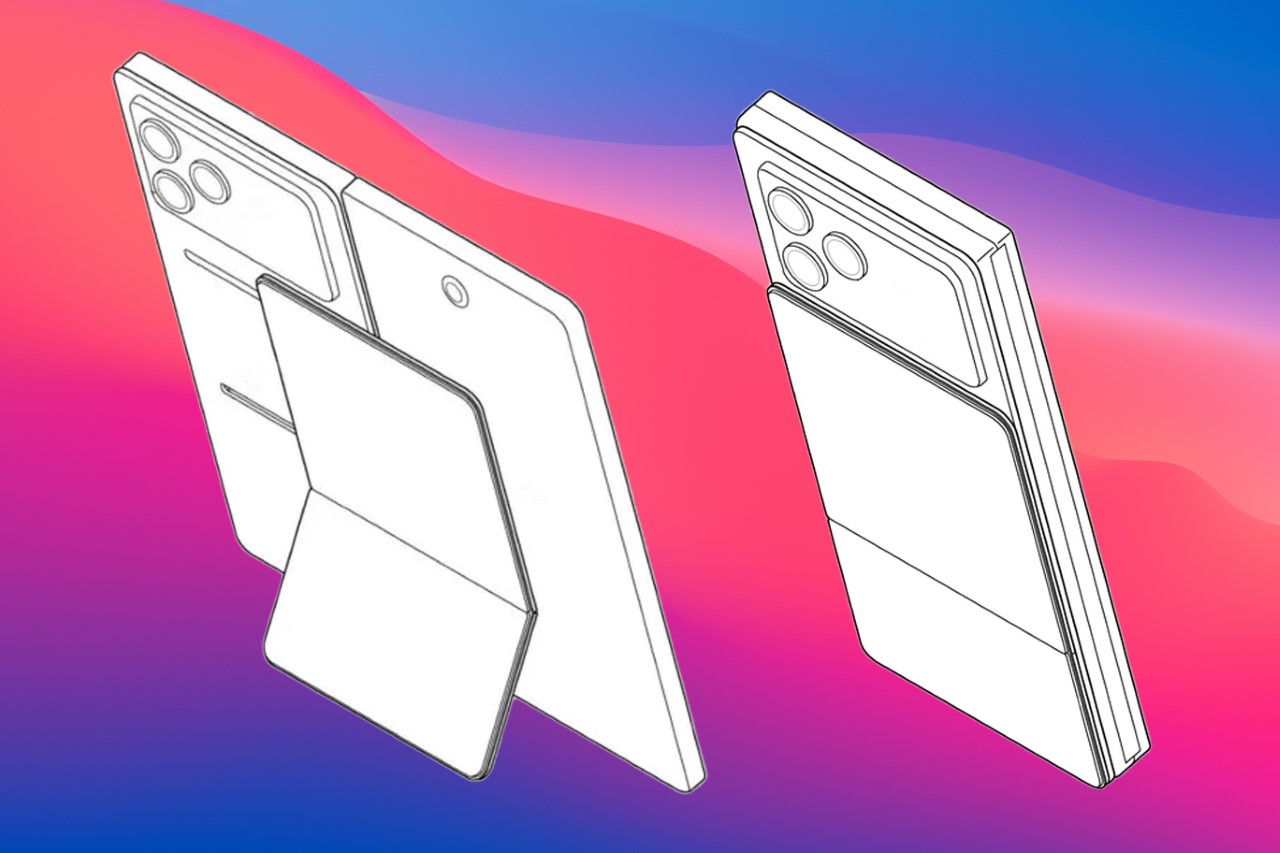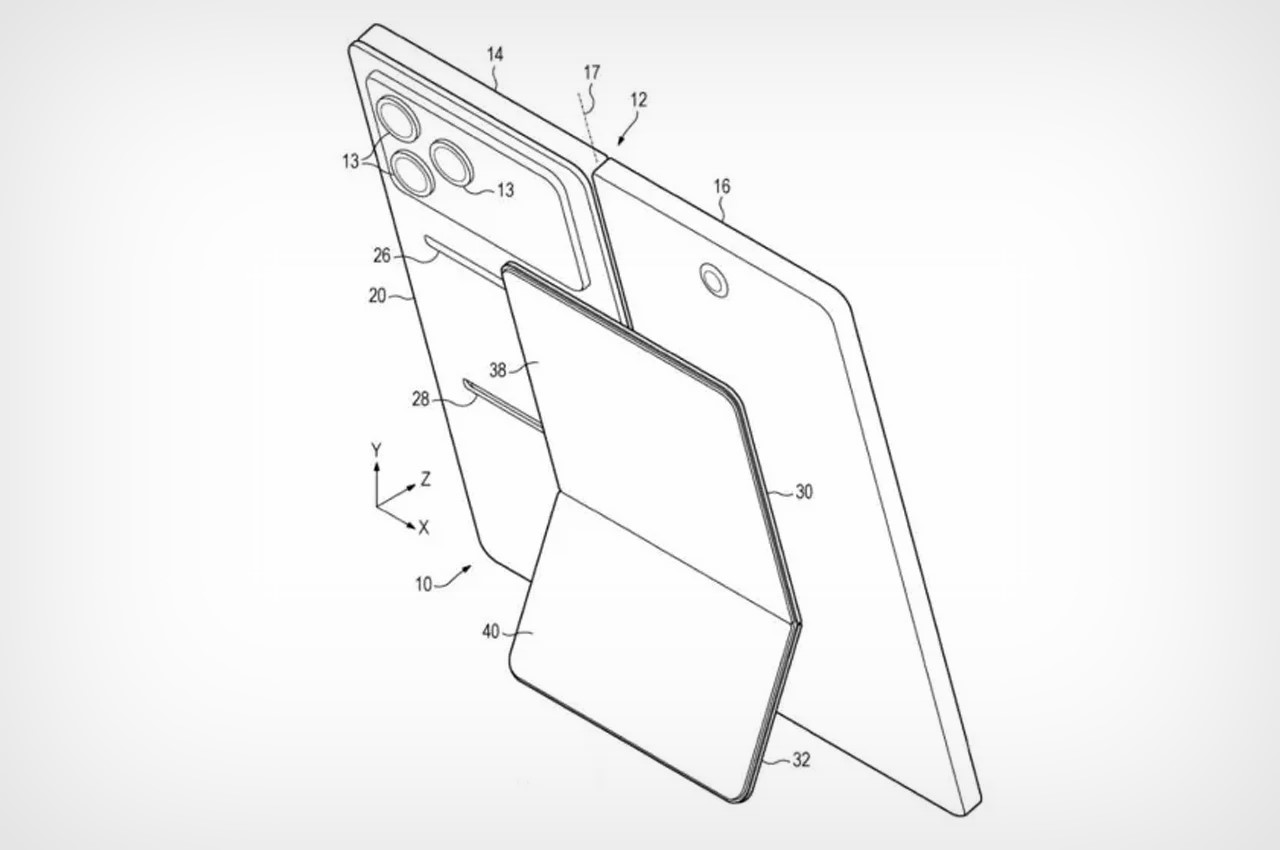
Microsoft killed its foldable smartphone adventure in 2023 after two iterations of its unique idea of a folding phone. The Surface Duo and Duo 2’s two-screen design didn’t pan out too well with the consumers. While the competition in the foldable Android phone market perfected the creaseless form factor, Microsoft – though having outsmarted Apple to the foldable phone category – lost out with its unprogressive design.
A new patent shared by Patently Apple shows that Microsoft, most likely, had made peace with the demanded form factor and may have been working on a design codenamed Neon (supposedly the now-canceled Surface Duo 3). The unreleased device detailed in the patent, shows how the phone would have looked with improvements like an external cover display, single folding screen without a crease, and Apple MagSafe-esque magnetic accessories.
Designer: Microsoft / Patently Apple

The uncanny two high-resolution touchscreens of the Surface Duo 2 couldn’t open the users’ minds to adoption and Microsoft felt the pinch of it. A reason why the patent of a never-released phone suggests that the device was being visioned with a concealed hinge folding inner display – like in Galaxy Fold models – instead of two separate displays with a noticeable distinguishing hinge.
The new 180-degree hinge design of the device, in the patent, is accompanied by a cover screen on the outside, which was missing in the previous surface models. Interestingly, the design suggests the cover and inner folding screens with edge-to-edge, and a camera in the cover display for selfies and video calling. A larger camera array on the back – spanning the entire width of the device – features a triple camera module that looks identical to the iPhone’s camera array with lenses placed on the top left-hand side.
A standout feature revealed in the patent is support for magnetic accessories. This is an Apple MagSafe-style feature, which shows a kickstand attached to the device to prove its functionality and usability in different orientations. Additionally, the foldable phone featured a power button updated to pop open the phone – like a book – on a press, saving the user the effort of manually opening the two halves of the device. I know, Microsoft is not going to release a folding phone based on this revealed patent anytime in the future, but I think it did have the mettle to compete I presume.